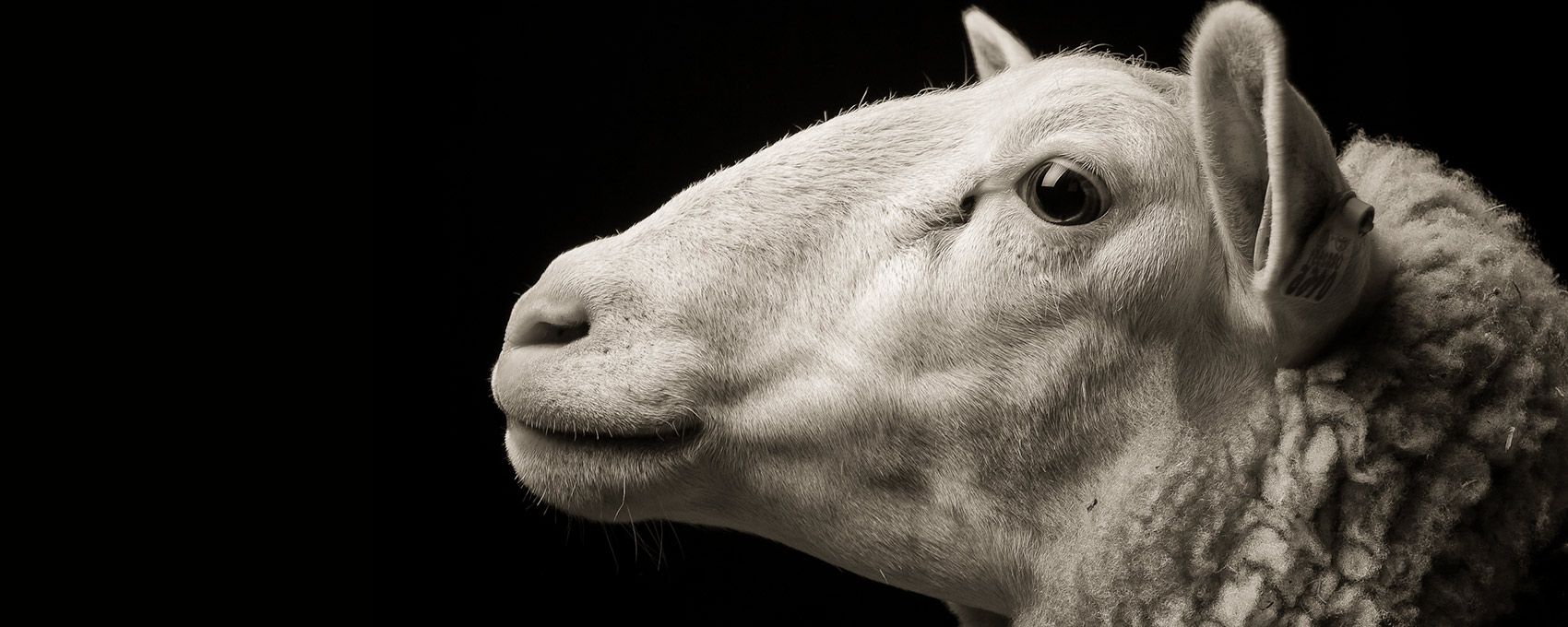by LORI MARINO

Lizzie #1. PHOTO/© 2009 KevinHoran.com from the series Chattel
Farmed animals have personalities, smarts, even a sense of agency. Why then do we saddle them with lives of utter despair?
We’ve all heard them and used them – the common references to farmed animals that appeal to the worst part of human nature: ‘pearls before swine’, ‘what a pig’, ‘like lambs to the slaughter’, ‘bird brain’. These phrases represent our species’ view of farmed animals as not particularly bright, uncaring about their treatment or fate, and generally bland and monolithic in their identities. My team of researchers asked: ‘What is there to really know about them?’ Our answer: plenty.
I’ve had the privilege of being the lead scientist for the Someone Project, a joint venture of two US nonprofit organisations, the Kimmela Center for Animal Advocacy, and Farm Sanctuary. The Someone Project is an exploration of our scientific knowledge of the minds of farmed animals. My co-authors and I have explored the peer-reviewed literature on intelligence, personality, emotions and social complexity in pigs, chickens, cows and sheep, and the journey ‘inward’ into the minds of these animals has been nothing short of revelatory.
While most people accept that farmed animals possess simple emotions such as fear, they are less open to the idea that the animals’ emotions can be familiar and complex. One example is cognitive judgment bias, also known as optimism and pessimism. We all know the feeling of being able to take on the world when bolstered by good experiences and praise. And, unfortunately, we also know what it feels like to give up when we are pummelled by bad experiences. Cognitive bias is a deviation in judgment as a result of emotional experiences. How we interpret ambiguous stimuli or situations depends upon whether we are depressed or anxious, or feeling on top of the world. Pigs, chickens, sheep and cows feel it too. Just treat cows, sheep or chickens roughly through exposure to loud noise or the presence of a predator, or any other uncontrollable negative condition, and assess how they perform on a typical discrimination task differentiating between two stimuli to get a reward. Just like you, all that stress biases their brains and ability to do well.
In one study, sheep had to learn to discriminate between two buckets marked with different visual patterns (horizontal versus vertical stripes) and respond by walking over to either end of the room to the bucket associated with food. Sheep who experienced prior aversive events were compared with an unexposed group. When confronted with this simple task, the stressed-out sheep were more reluctant to approach the buckets and made more errors than their unexposed counterparts. After a tough life, they view the world through the opposite of rose-coloured glasses. Sound familiar?
If farmed animals are so vulnerable to bad treatment, how can we maintain the illusion that having one’s tails, ears and horns cut off makes no difference to them? The fact is that several scientific studies show sheep in despair, with physiological signs of stress and depression when subject to unpredictable and uncontrollable conditions such as the sudden appearance of a new object while they are eating. They are experiencing the well-known psychological phenomenon of learned helplessness, in which learning that one cannot control one’s environment or life leads to depression and lack of motivation to even try. Learned helplessness is seen in sheep, in other farmed animals, in many animals in zoos and marine parks, in lab animals, and, yes, in humans who experience continued hard knocks throughout life, especially as children.
Aeon for more
